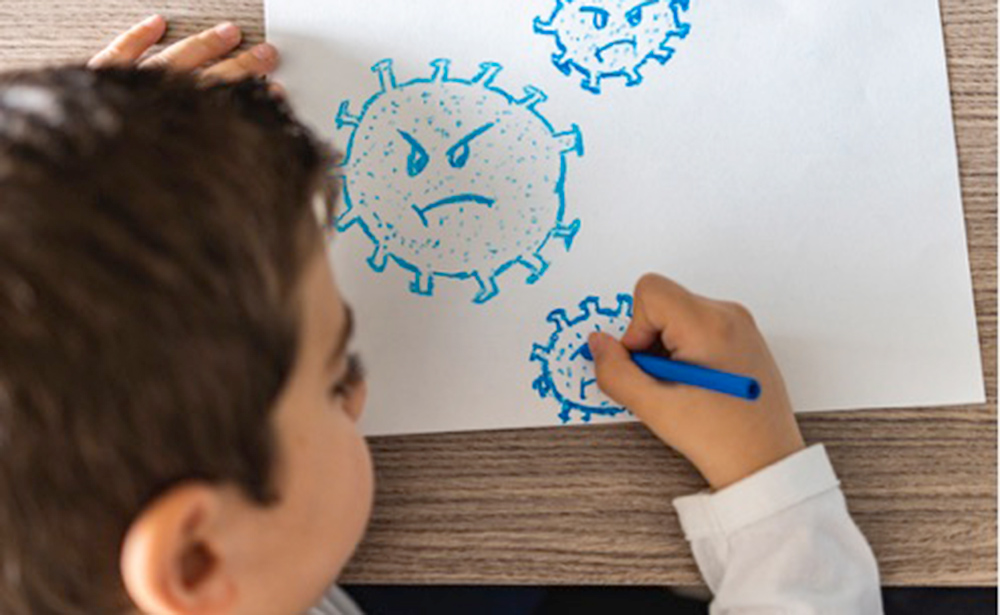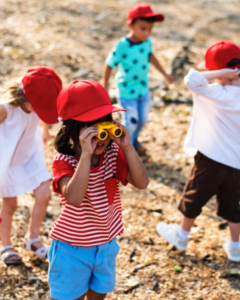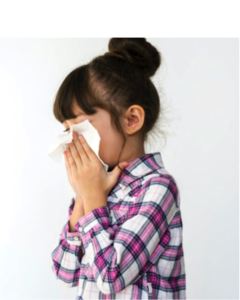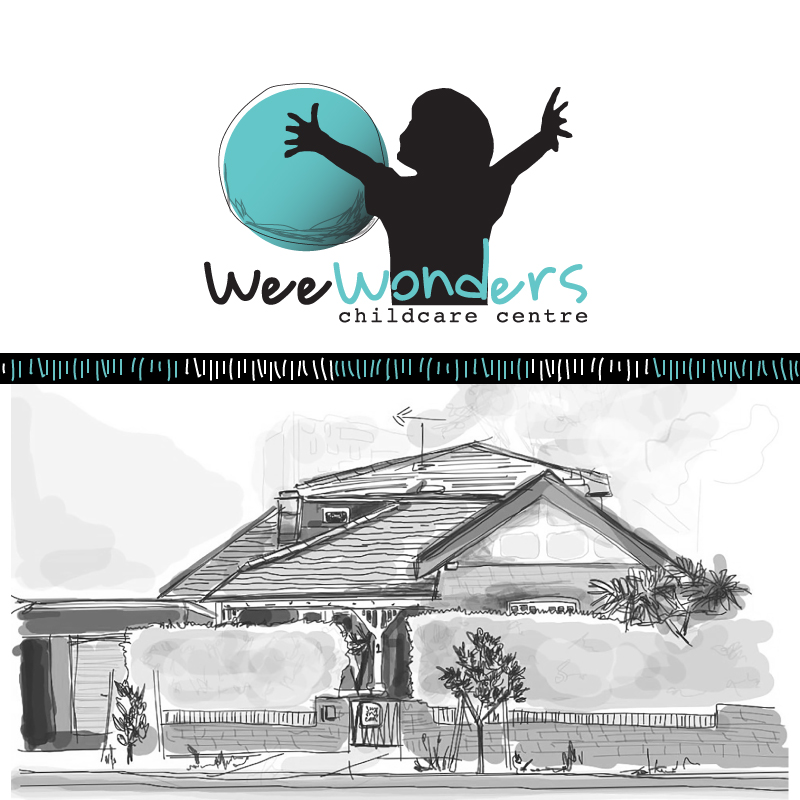
Wee Wonders Covid Safe Plan is in place to create a safe environment for children and staff
Wee Wonders COVID-SAFE Plan
Continuity management phase of the COVID-19 pandemic
WEE WONDERS WILL CONTINUE TO WORK TOGETHER WITH STAFF TO ADAPT AND PROMOTE SAFE WORK PRACTICES, CONSISTENT WITH ADVICE FROM HEALTH AUTHORITIES TO ENSURE A COVID-SAFE WORKPLACE WITH EXEMPLARY HYGIENE MEASURES TO ENSURE THE HEALTH AND SAFETY OF ALL STAFF.
Additionally, Wee Wonders must be prepared for the possibility of further cases of COVID-19 in the workplace and be able to respond immediately, appropriately, and efficiently, and consistently with advice from health authorities and the regulatory authority. (SafeWork Australia)
RISK ASSESSMENT

Since the COVID-19 pandemic began in March 2020, Wee Wonders has undertaken thorough risk assessments in consultation with staff members and identified possible risks and hazards to our learning environment and practices. With the significant increase in transmission of the Omicron variant of COVID-19, our COVIDSafe Plan has been amended to adhere to government requirements to ensure the safety of children and staff. Given the continued changes in managing COVID-19 in early education and care services, we will continue to review control measures and address risks identified regularly based on recommendations provided by our regulatory authority and state health department.
Wee Wonders continue to keep all staff and families informed on the changing risks at our workplace and the control measures being implemented to minimise these risks.
STAFF COVID-19 MANDATORY VACCINATIONS
- All staff have received two doses of the COVID-19 vaccination. This includes all staff working on site, volunteers, contractors, maintenance staff, cleaners and all other workers.
- The Approved Provider will keep accurate and up to date records of COVID-19 vaccinations for all staff. Evidence of vaccination status will be required.
- If a staff member is feeling unwell and is displaying any of the symptoms of COVID-19 they should get tested and not attend Wee Wonders. They should receive a negative COVID-19 test and be symptom-free before returning to Wee Wonders. [Tests include RAT or PCR].
STAFF ARRIVAL & ON-SHIFT PROTOCOLS
- Staff travelling to work
- travelling in their own car is preferable
- Wear face covering if mandated to do so by Public Health orders when using public transport
Staff are required to:
• wear masks whilst indoors
• wash hands thoroughly upon arrival at Wee Wonders with soap and water
• clean and disinfect objects that are touched often- mobile phones, keys, wallets, work passes
• use alcohol-based hand sanitisers if soap and water are not available
• as so far as reasonably practicable, ensure they maintain a physical distance of 1.5 metres between each adult at Wee Wonders
• wash uniform/clothes each day
PARENT / CHILDREN ARRIVAL AND SIGN-IN PROTOCOLS
- • parents/carers and other family members are mandated to check-in using the NSW QR code provided
• children are dropped off/picked up at the door
• social distancing between adults will be maintained wherever possible
• parents/families and any adult over the age of 12, must wear a face mask
• designated area for drop-off/ pick-up area is clearly indicated
• signage clearly indicates drop off and pick up procedures for children- parents not entering foyer/ building;
• consideration is given to families for whom English is their second language and written information translated
• consideration is made to avoid families queuing in car park and causing traffic congestion
• markings indicate 1.5m physical distancing requirement between families to avoid clusters of adults together
• one staff member to greet the parents at the door to collect the child/ren
• if families require additional assistance with multiple children, other staff members may be required to assist
VISITOR / TRADESMAN ARRIVAL PROTOCOLS
-
• visitors to Wee Wonders have been reduced to an absolute minimum
• all visitors to Wee Wonders must check-in using the NSW QR code
• vulnerable or high-risk people excluded where practical, including the elderly and those with pre-existing medical conditions
• deliveries are regularly reviewed, and drop-off organised at a predetermined point outside Wee Wonders
• only a minimum number of staff members are designated to receive deliveries to reduce risks
• electronic paperwork/ e-invoicing used where possible
• minimise interaction and alternatives to signatures of deliveries received- contactless methods or use own pen
• alcohol-based hand sanitiser used before and after receiving any packages/deliveries
• contractors who require entry to Wee Wonders adhere to hygiene procedures
• clear guidelines provided to contractors when visiting Wee Wonders regarding physical distancing, hygiene protocols and child protection
• handwashing facilities are provided to contractors to ensure they wash their hands thoroughly upon arrival, wipe any equipment with disinfectant wipes
EXCLUSION GUIDELINES
Any staff member, child or visitor to Wee Wonders who presents with any of the following, will be excluded from the service. Any person who:
- has a temperature/fever

- presents as ‘unwell’ –unexplained or persistent cough, drowsy or unresponsive, shortness of breath, respiratory illness, runny nose, suffering with diarrhea or vomiting, has a persistent headache
- is identified as a ‘household contact’ of a confirmed case of COVID-19 and develops symptoms or tests positive on a RAT. The staff member, child or visitor must isolate either way for 7 days.
STAFF MEMBER OR CHILD TESTS POSITIVE TO COVID-19
-
any person who tests positive to COVID-19 must inform their workplace/employer, school and early childcare facility and any other social contact they have spent time with from the 2 days they started having symptoms or 2 days before they tested positive. COVID-19 can be confirmed by a positive Rapid Antigen Test (RAT) or a polymerase chain reaction (PCR) test
• the person who tests positive must immediately isolate for seven (7) days. Positive cases can only leave self-isolation after a minimum of 7 days and if they are asymptomatic.
• the Approved Provider or nominated supervisor must submit a notification through the National Quality Agenda IT System (NQA ITS) as soon as they become aware of the positive case
• the Approved Provider or nominated supervisor will determine infectious period of positive case (48 hours prior to positive COVID test or from onset of symptoms, whichever is earlier) to determine possible contacts
• the Approved Provider or nominated supervisor will determine staff, children, visitors who were in attendance with the case during their infectious period
• notification will be made to these contacts (parents, staff, visitors) through a risk of COVID letter and provide other information about self-isolation, Rapid Antigen Testing and symptoms of COVID-19
• testing and isolation are no longer mandatory in ECEC settings. However staff and children who are considered as ‘high risk’ are advised to isolate for 7 days
• Wee Wonders will be cleaned thoroughly and all areas which may have been contaminated are disinfected.
• Wee Wonders is required to close for operational reasons (e.g., unable to meet regulatory obligations under National Law), the Regulatory Authority will be contacted for advice and support. Families will be notified as soon as possible.
• the Department of Education, Skills and Employment (DESE) will be notified of any closure via our third-party software or the Provider Entry Point
• Wee Wonders will only share identity information with the PHU as per our privacy obligations under the Privacy Act and in accordance with our Privacy and Confidentiality Policy.
STAFF MEMBER – CLOSE CONTACT EXEMPTION
• Staff in education and early childhood education are considered essential workers. Close contacts are therefore exempt to leave self-isolation and attend work if they have no COVID-19 symptoms under the Public Health (Self Isolation) Order (No 4) 2021. The Approved Provider will consider controls based on a local risk assessment of the work place to ensure the safety of staff and children. This is a voluntary and mutually agreed arrangement.
• The close contact must receive an initial negative COVID-19 test and be tested daily using a rapid antigen test (RAT) for the remainder of the 7-day isolation period following the date of last exposure. Wee Wonders must decide upon the control measures implemented to exempt close contacts returning to the workplace. See: National Cabinet Statement 13 January 2022] and Checklist for COVID-contacts
• Control measures for staff may include:
o Providing RAT test and face masks to the staff member
o ensuring staff members notify Wee Wonders of all COVID-19 test results
o staff member must immediately self-isolate if they receive a positive RAT
o exempt workers must not share break/tea room areas
o staff member will only work where the area is well ventilated or outside
o the exempt person must take the most practical direct route to and from the workplace
o when not at work the exempt person must comply with the self-isolation requirements
HYGIENE AND PREVENTATIVE PRACTICES
- •all staff complete COVID19 infection control training
• the number of visitors entering Wee Wonders has been limited (controlled)
• anyone who is sick may not enter Wee Wonders
• if a child or staff member becomes ill whilst at Wee Wonders, they will be sent home as soon as possible (As a precaution, they will be separated from other children whilst waiting to be collected to help prevent the spread of a virus)
• we have enhanced hygiene practices for all staff, children and visitors – washing hands with soap and water or using alcohol-based hand sanitiser
• all persons over the age of 12 may need to wear face coverings as mandated by state/territory public health orders
• health and hygiene signs and posters are displayed to remind all staff and visitors of the measures necessary to help stop the spread of the virus- hand washing, cough and sneeze etiquette
• tissues are disposed of in closed bins and followed by washing hands
• all staff are reminded to avoid touching their face, eyes, nose and mouth
• promotion of the annual influenza vaccination for staff, children and their families
• facilitation of robust infection control and cleaning
• reminders to refrain from intentional physical contact- shaking hands, kissing on cheeks, hugging
• Wee Wonders has adequate Personal Protective Equipment (PPE) and additional hygiene supplies including:
o soap
o hand sanitiser
o toilet paper
o paper hand towel
o tissues
o disposable gloves
o masks (if required)
o thermometers
o rubbish bins with lids/bin liners
o disinfectant wipes
o cleaning detergent/ disinfectant/ cloths
-
Handwashing
- we implement strict hand washing procedures for all staff, children and visitors
- all staff have read and acknowledge understanding of the Hand Washing Policy
- hand sanitiser stations are provided at front entry of Wee Wonders and in locations around the workplace
- bathrooms are well stocked with soap, hand wash and paper towel
- posters with clear instructions on how to wash hands and/or use hand sanitiser are displayed
- photos of children demonstrating each step of hand washing near the sinks are displayed as visual prompts
- considering installation of no-touch sensor taps in bathrooms for children to use
- cough/sneeze etiquette:
- o posters demonstrating correct techniques for coughing/sneezing into a flexed elbow are displayed
o staff model correct procedures to children
o attempts by children are positively reinforced
o reminders to wash hands after sneeze, blowing/wiping nose is displayed
o reminders to dispose of used tissues in the bins provided are displayed
Physical distancing
- where possible, we remain conscious of physical distancing requirements in each enclosed space and limit the number of adults in a space at any one time
- staff are reminded to maintain a physical distance of 1.5 metres between other adults
- markers to indicate 1.5 metres for parents to comply to physical distancing requirements upon arrival at Wee Wonders
- where possible, staff are requested to use other methods of communication with colleagues rather than congregate together
- workstations, desks and tables are spread out
- changes have been made to the workplace layout to allow staff and children to enter and exit rooms minimising risk to their health and safety
- markers are used on the floor to indicate pathways for entry and exit to avoid queuing
- signs are displayed to remind staff of how many people can be in an enclosed space at any given time (for example: kitchen, resource room, bathroom)
- staff will comply to physical distancing requirements when
- eating lunch
- discussing children’s development
- gathering resources
- cleaning
- as an option, staff use a fold-out table outside for breaks and lunch, weather permitting
Considerations include:
- stagger play times for children
- organise small groups for indoor and outdoor learning program
- utilise the outdoor area as much as possible
- rearrange resources in rooms to provide a larger range of small group activities- books in several locations rather than one bookshelf; several stations for paint, playdough, craft
- limit number of chairs at a table
- set up activities at the end of tables
- limit number of adults sitting at tables with children during mealtimes
- maximise the space between children at mealtimes
- consider offering several mealtimes sittings to avoid all children requiring seating at one time
- clean tables and chairs thoroughly between each sitting
- ensure highchairs, cots and bedding are spaced well apart to allow for physical distancing requirements to be managed by staff
Food handling and preparation
- staff have relevant and appropriate training to support safe hygiene practices
- staff maintain physical distancing requirements in food preparation areas
- the kitchen area is only accessed by specific staff during hours of operation
- signage is used to remind staff members of how many adults can enter kitchen area at one time
- effective hygiene procedures are increased including-
- regular handwashing when preparing foods, after going to the bathroom and after touching face or hair
- cleaning and sanitising food preparation areas and equipment
- sanitising all eating and drinking utensils and food contact surfaces
- current practices are used regarding provision of reusable utensils
- disposable gloves are used when handling food
- option – suspend self-serve mealtimes for children- meals will be served by staff only
Cleaning and disinfecting procedures
- a combination of cleaning and disinfection is used on a daily basis
- surfaces are cleaned with detergent and water before disinfecting
- adherence to National Health and Medical Research Council (HMRC) childcare cleaning guidelines
- high touch surfaces are cleaned and disinfected at least twice daily or more frequently if required (door handles, light switches, tables, chairs, iPads, tablets, keyboards, touch screens, nappy change tables, puzzles)
- wash and launder toys using the warmest appropriate water setting and dry items completely
- maintain a cleaning register of all surfaces and equipment
- every toy and surface cleaned every day. Toys that are mouthed by infants cleaned and disinfected before other infants have access to the toy
- option – consider appointing a cleaning monitor for Wee Wonders
- cleaning contractors instructed to hygienically clean the service to ensure risk of contamination is removed
- staff wear appropriate personal protective equipment (PPE) for cleaning as a precaution
- hands washed with soap and water before and after wearing protective equipment
- gloves disposed of in leak-proof bag
- personal belongings stored in lockers to avoid cross contamination
Washroom facilities
- all washrooms for staff and children have adequate supplies of soap, liquid handwash, paper towels and warm running water
- effective personal hygiene practices are reinforced through posters and fact sheets in prominent positions in the service
- staff model correct handwashing procedures with children
- the number of children and adults using washroom facilities is limited at any one time
- situations where children are required to queue to use toilets or wash their hands are avoided
- all facilities are cleaned and disinfected effectively
- bins with lids operated by foot pedals are easily accessed in washrooms
PHYSICAL SPACE REQUIREMENTS
Indoor and outdoor environments
- where possible, children are separated into smaller groups than normal throughout Wee Wonders to promote physical distancing for adults
- ventilation within Wee Wonders is increased by opening windows and doors when weather permits
- a reduction in cross over of educators is controlled where possible
- where possible, children are seated at opposite ends of a table when playing and eating
- encourage children to sit apart during group time
- use small tables spaced apart rather than groups of tables positioned together for activities and eating
- considerations during transitions between learning experiences – washing hands, collecting hats, drink bottles, resources, using the bathroom- how can these be managed to reduce queuing and the need for several adults to supervise
- the amount of rubbish bins is increased so children don’t gather in groups
- where practical consider moving some table activities outside
- Set up duplicate activities at tables to provide more space between children and adults
- rotation of groups for indoor and outdoor play environments ensuring educator to child ratios are maintained
- consideration given to limiting numbers of children accessing particular equipment to ensure adequate supervision and adhering to physical distancing for adults as much as possible e.g.: sandpit, climbing equipment
- all outdoor equipment is regularly cleaned and disinfected
FAMILY ENGAGEMENT AND COMMUNICATION
- positive interactions and relationships with children and their families are maintained
- Wee Wonders provides reliable sources of information to share with families during this pandemic including updates and guidance from our health department – Early childhood education and care (ECEC) COVID-19 guidance for families
- we use trusted sources of information only
- we use a range of communication methods to ensure all families receive and understand key messages- emails, phone calls, newsletter, digital platform, personal notes, Wee Wonders website
- signage around Wee Wonders for parents and families has been increased providing directions, procedures and reassurance
- phone calls to families to provide information about their child that would normally be done at the end of each day face to face has been increased
- displays are positioned at the front foyer area to ensure families who are no longer entering Wee Wonders can be informed about what has happened at Wee Wonders that day- including artworks, books that have been read and other information
- families are kept informed about: CCS, payment of fees, gap-fee waiving and allowable absences
- information is provided to families about their responsibilities for updating information to Centrelink through myGov
- families who may be eligible for Additional Child Care Subsidy-Temporary Financial Hardship are encouraged to contact Centrelink see: ACCS
- support is provided to families to assist in their child’s well-being BeYou Emerging Minds
- remain consciously aware of families and children who may be more vulnerable or at risk due to the COVID-19 environment- see National Office for Child Safety, eSafety Commissioner, Kids Helpline
- continue connecting with children and families who have not yet returned to early learning through online platforms
- continue to maintain positive relationships with all families to encourage participation with Wee Wonders
- information provided to children is age appropriate and sensitive to their emotional wellbeing
CONTINUITY OF EDUCATORS Our priority remains the health, safety and wellbeing of children in our care. Wee Wonders will continue to provide adequate supervision, educator-to-child ratios and early childhood teacher requirements. We:
Our priority remains the health, safety and wellbeing of children in our care. Wee Wonders will continue to provide adequate supervision, educator-to-child ratios and early childhood teacher requirements. We:
-
• have conducted a thorough risk assessment and implemented control measures to reduce transmission of the virus in Wee Wonders
• provide staff with access to RATs and face masks
• maintain open communication with staff about continuity of employment
• where possible, maintain similar rosters and placement of educators in particular rooms to provide continuity of care for children
• ensure staffing rosters meet or exceed educator to child ratios.
COMMUNICATION AND CONSULTATION WITH STAFF
- • Wee Wonders provide updated information about the management of COVID-19 in ECEC settings sourced from our Regulatory Authority
• clearly discuss exemption guidelines for staff who are close contacts of COVID positive case
• consult with staff on health and safety matters relating to COVID-19 on a regular basis by revisiting our risk assessment
• discuss the current control measures in place to eliminate or minimise the risk of exposure and review as required
• routinely communicate and consult with all staff about any modifications or updates to current policies or procedures that are in place to account for the pandemic conditions – (COVID-19 Safe Management Plan, Arrival and Departure Policy, Health and Safety Policy, Control of Infectious Diseases Policy, Sick Child Policy, Hand Washing Policy)
• assessment of the adequacy of resources/facilities in the workplace for the welfare of all staff is routinely applied
• we maintain regular consultation with staff about current work, health and safety measures implemented and any changes or additions that may need to be made to ensure the safety for all staff
• if and when required, we consult with staff about changes to work rosters, meet and greet roles, staff meetings, training, assessment and rating
• limitations are placed on non-essential meetings, gatherings or training
• non-face-to-face methods of communication is used when practical – emails, Zoom, Skype
STAFF WELLBEING
- a conscious effort to maintain strong and supportive relationships with all staff members is made (including staff on leave)
- up to date information from reliable sources is provided. Including:
- o access to Rapid Antigen Tests (RAT)s for staff
-
o information about the Pandemic Leave Disaster Payment for those staff members who need to isolate due to COVID-19 as they have coronavirus, are a close contact or are caring for someone who has COVID-19. Employment support packages through Department of Education, Skills and Employment (DESE)
o Safe Work Australia recommendations for Work Health and Safety
o Department of Health- Australian Health Protection Principal Committee (AHPPC)
o Support agencies including counselling services (Beyond Blue, Head Space)
• sensitivity and empathy to the feelings of individual staff members is paramount, in particular staff who may be concerned about returning to the workplace
• we offer opportunities for discussions about the support that is available such as Beyond Blue to help cope with trauma and anxiety or through the Employee Assistance Program (EAP) provider our business is assciated with (if applicable)
• constant reassurance is provided to staff indicating that we are always working to eliminate or minimise risks to their health and safety in the workplace to help ease their concerns
• immediate response is applied to any workplace bullying by following relevant policies and procedures
• confidentiality and privacy laws are maintained at all times
• we foster wellbeing initiatives as suggested by staff members and professionals within the Early Childhood Education and Care Sector (Mindfulness, Yoga, dance, music)
• all staff take required breaks during the day
• opportunities are provided to staff to engage in online professional development courses and workshops
• time is set aside for programming, mentoring sessions and capacity building
STAFF RETURNING TO WORK
- Approved staff returning to work following a positive case of COVID-19 must only return after completing at least 7 days isolation and be asymptomatic
• the Approved Provider will meet with staff members returning to work to cooperatively plan for transition back to work from leave- long service, sick leave or other leave entitlements
• discussions may include possible changes that have been implemented to keep the workplace safe, healthy and reduced risks of spreading COVID-19
• staff will be required to revise any policies and procedures that have been amended due to COVID-19 such as
o Health and Safety Policy, Arrival and Departure Policy, Hand Washing Policy, Sick Child Policy
• staff protocols will apply (COVID-19 vaccinations/booster vaccination where applicable)
STAFF TRAINING
- options for the delivery of refresher training for First Aid and CPR through the Australian Skills Quality Authority as recommended by ACECQA is made available
- option – consider completing theoretical aspects of training by individual staff members online
- the range of interactive and online courses offered through professional learning providers is consistently investigated (webinars, e-learning modules)
- option – consider offering professional learning time for staff to complete modules at home
- we encourage and support educators to gain professional learning hours towards teacher accreditation requirements relevant to each state and territory requirements
VULNERABLE STAFF MEMBERS AND CHILDREN
- children and staff members with compromised immunity or complex health care needs are identified
- we request staff members with underlying health conditions to seek medical advice from their health practitioner regarding additional measures required to protect themselves whilst at work (PPE, additional handwashing, less contact with infants or younger children requiring nappy changing)
- staff who are more vulnerable to COVID-19 may include:
- Aboriginal and Torres Strait Islander peoples aged 50 years and older with one or more chronic medical condition
- people aged 65 years and older with chronic medical conditions
- people with compromised immune systems
- families have been requested to update their child’s medical management, risk minimisation and communication plans in consultation with their child’s health practitioner- including Asthma Management Plans
- all staff and children are encouraged to have the annual influenza vaccine if there are no contraindications to do so.

